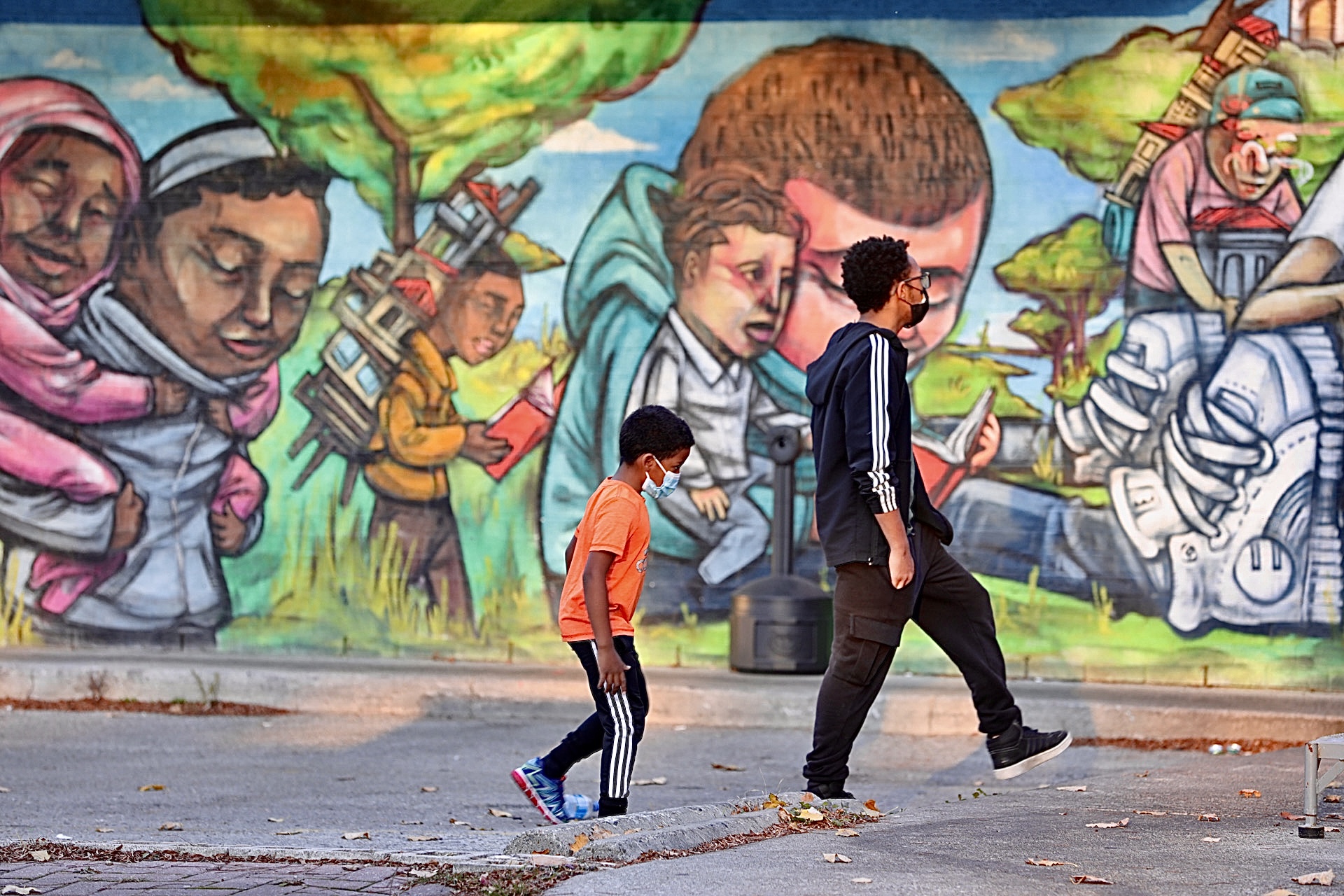It is difficult enough for adults to decide to leave their home countries and start a new life in another culture, but imagine how much harder it must be for children who don’t get a choice in moving away from everything they know.
Nov. 20 is World Children’s Day and this year’s theme is equality and inclusion: “Kids will stand up for a more equal, more inclusive world,” UNICEF states in this year’s announcement. The date was first established in 1954 as Universal Children’s Day to focus on awareness and child welfare worldwide.
Immigrant kids in Canada face several challenges, including culture shock, language barriers and adapting to a strange new life. Many of them are forced to migrate from their homelands due to war, hunger or political unrest.
“Children are extremely resilient. They are adaptable, they have many strengths,” said Shazeen Suleman, a pediatrician at St. Michael’s Hospital in Toronto and an assistant professor at the University of Toronto’s Temerty Faculty of Medicine.
“If we approach children from that perspective, then we can support them in the best way possible.”
Suleman cares for kids who are newcomers to Canada may have medical developmental diagnoses or and mental health issues. She said that in her experience, children never choose to immigrate to a new country — they come because of a decision that an adult in their life has made.
“What children need to know is that they can be safe, that they are cared for, and that their family is there for them through all these changes,” Suleman said.
According to Statics Canada, the record number of immigrants who arrived in Canada from 2016 to 2021 increased though it was restricted in 2020 during the COVID-19 pandemic. And children of immigrants who have at least one foreign-born parent rose from 26.7 per cent in 2011 to 31.5 per cent in 2021.
Children and teens who immigrate to western countries experience advantages, but they face difficulties getting used to living in a new country. They have left their homes as well as relatives, friends, schools and routines they grew up with.
Learning to adapt
Fatma Yesilyurt, a Toronto clinical psychologist who specializes in youth therapy, said immigrant children struggle to adapt to cultural, language and belief differences. They also witness the effects of the stresses on their parents and siblings.
“The fact that children have healthy social environments and have friends will accelerate them to feel that they belong to the new country,” Yesilyurt said. “Schools, teachers and people living here have responsibilities in this regard.”
Fourteen-year-old Busra immigrated from Turkey to Canada two years ago and has just started studying at a high school.
“My English was not very good at first. That is why I did not have friends at the beginning,” Busra said. “It was slower to make friends and it took time.”
The Toronto teen said everything was foreign in her new life: Grocery stores, the environment, and transportation as well as school. “It took time to get used to recognizing them,” she said.
Busra was 12 years old when she arrived in her new country and she says newcomer kids are luckier than adults because it is easier for a child to get used to living in a new place. And studying in Canada is an incomparable opportunity for children.
“Students are involved more in their social life here. Back home, we were drowning in assignments, unlike here,” she said.
Zeynep, Busra’s 11-year-old sister, faced different challenges as she adapted to living in Canada.
“I started in primary school, in Grade five, and I could not speak English well because language education was not good back home,” Zeynep said
“Communicating with my classmates and teachers was hard because of the language at the beginning, but I handled it in a very short time.
“Even though we come from different cultures, my friends help each other and teach each other new things.”
Balancing different cultures
Parents often find themselves in a dilemma regarding whether they should sustain their culture and speak their mother tongue at home, or if that would make it harder for their kids to adapt to their new country.
“The biggest fear of parents is that their children move away from the culture they belong to,” Yesilyurt said. “In order for the child to adapt to the new culture without forgetting his own culture, it is important that both the families and the school environment have a strong and constructive awareness of this.
“I think an approach that is mixed, but will not make you forget the values, is the healthiest approach.”
Yesilyurt said that teaching newcomer children about their new country helps with integration.
“It is important that children are told and introduced to the characteristics of the country, and the culture, they have just arrived in,” she said.
“Teacher and parent support is also great support to improve their social circle and accelerate their sense of belonging to friend groups.”
Nur Dogan is a Turkish journalist who lives in Toronto. She studied journalism at Humber College. Her stories and photographs were published not only in Canada but also in the U.S. and Europe. As a digital media reporter, she has covered national and international news for some magazines, newspapers and online news platforms. Focusing on human rights for all, Nur observes and reports on human rights violations, oppressions and illegitimate political attempts against visible minorities.





